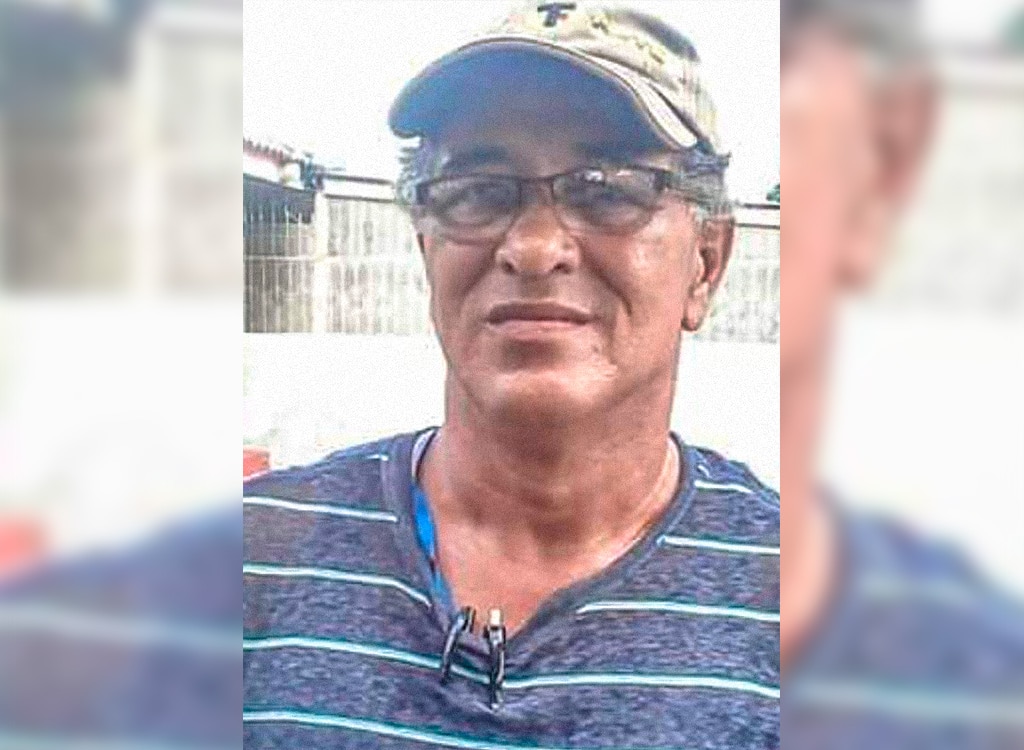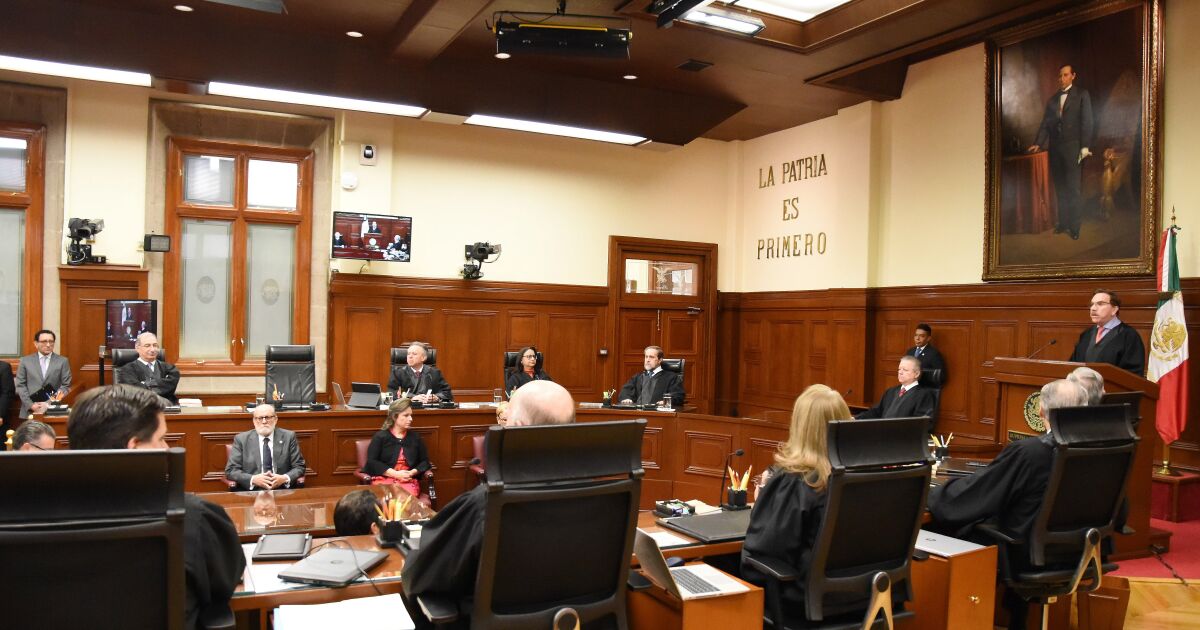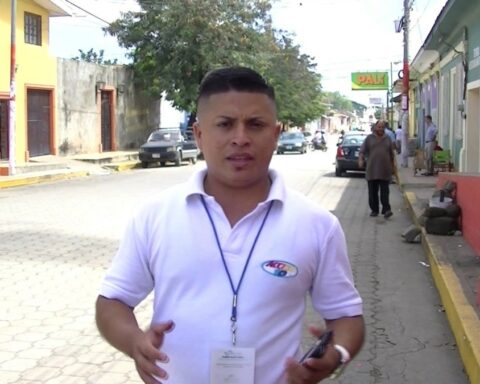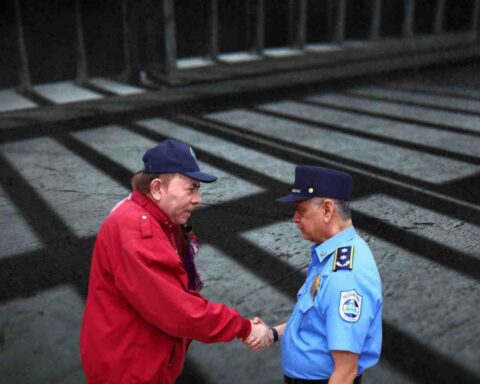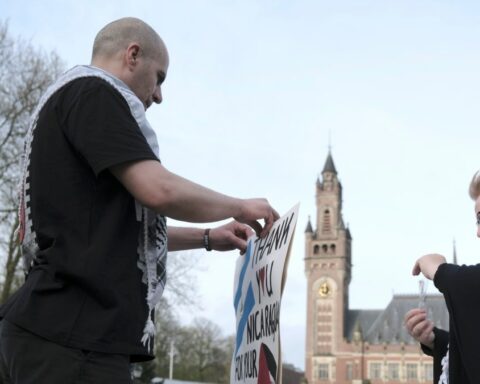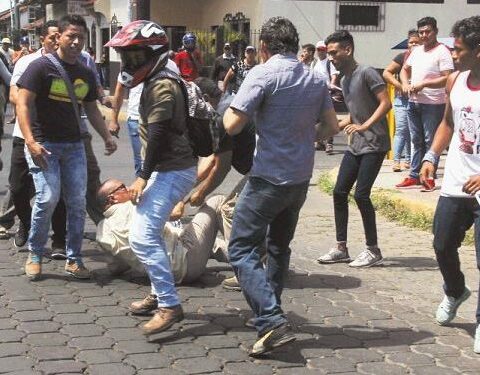The death of retired General Hugo Torres, who was a political prisoner during the last seven months of his life, has not been the only display of humanitarian disinterest by the Daniel Ortega regime, which controls justice in Nicaragua. At least two political prisoners have suffered extreme health problems due to prison conditions since 2018, and one of them remains imprisoned, having been hospitalized for more than five months.
Professor Eliseo Castro Baltodano, 59, suffered a stroke on September 13, 2021. As a result, he lost his speech, cannot walk or relieve himself psychologically. “He is conscious, but he is practically like a child,” says a relative.
The family assures that, three months ago, the doctors released him, but because his health is so deteriorated and there are no conditions to treat him in the Jorge Navarro Penitentiary Complex, known as La Modelo, the prison authorities keep him as “guest” in the hospital.
“He is no longer in the hands of any doctor. So, on several occasions we have had to insist that they do an exam because they (the doctors) tell us that it is no longer in their hands but of the system and they are the ones who decide whether to do the exams or not, “explains the family.
Eliseo Castro has been under arrest for two years
Castro is one of the political prisoners who has been imprisoned in the Modelo for the longest time. He was arrested in September 2019 near his house, in the Colonia Maestro Gabriel park, in Managua, by armed civilians and police officers.
The political prisoner was accused and sentenced for the crimes of “manufacturing, trafficking, possession and use of restricted weapons or explosive devices.” The Ortega justice sentenced him to six years in prison and a 350-day fine.
Castro Baltodano’s family assures that his health is deteriorating every day. During the time he has been in the hospital, where he also receives physical therapy, he has shown no improvement.
“If it’s not that he has bad pressure, he has a kidney infection. Right now we had the case that he has an allergy, we don’t know what is causing it, the medications or something else. He is red and swollen from that allergy. Every day is something different what happens to him, “they explain.
The family, together with the lawyer who is handling the case of Eliseo Castro Baltodano, asked the First Judge of Execution and Penitentiary Surveillance, Gertrudis Gaitán, to change the precautionary measure to house arrest due to his condition, but they have not received a response.
Family requests his release so they can care for him at home
“The lawyer already submitted a letter to the Ministry of Government asking the judge to show her face so that they would give them to us, but that has remained dormant. There has been no progress. We are just waiting because we no longer have anywhere to move”, laments the family.
Request assessment and change of regime in favor of Eliseo de Jesús Castro B since September, the coroner issued the opinion but the judge and the Public Ministry do not pronounce themselves (What are you waiting for? pic.twitter.com/O8ojZja1tH
– Yonarqui Martinez (@YonarquiM) February 13, 2022
Castro is a beneficiary of precautionary measures granted by the Inter-American Commission on Human Rights (IACHR), in November 2020, in which the organization requests the State of Nicaragua to guarantee the rights to life, personal integrity and health of the beneficiaries. .
The sum of political prisoners of the Daniel Ortega regime amounts to 177, most of these are detained in the men’s prison known as La Modelo and the women’s prison “La Esperanza”; but nevertheless, there are 40 who are detained in El Chipote and who have suffered irreparable damage to their physical health and mental due to mistreatment and torture.
The case of Justo Rodríguez, political prisoner of Ometepe
In the same Antonio Lenín Fonseca Hospital, where Castro is, was previously Justo Rodríguez, a political prisoner from Ometepe Island, who was released after being hospitalized for four of the eight months he was detained, and was handed over to his relatives practically unrecognizable.
“They gave me a little pile of bones,” lamented his sister after he was released in December 2020 and saw that there was no trace of the strong and energetic man he was months ago.
Rodríguez was severely beaten during his arrest and received no medical attention. A month after being in prison, he suffered a cerebral embolism and was taken to the hospital for this, after his lawyer and the Permanent Commission on Human Rights (CPDH) publicly denounced that his condition was serious.

